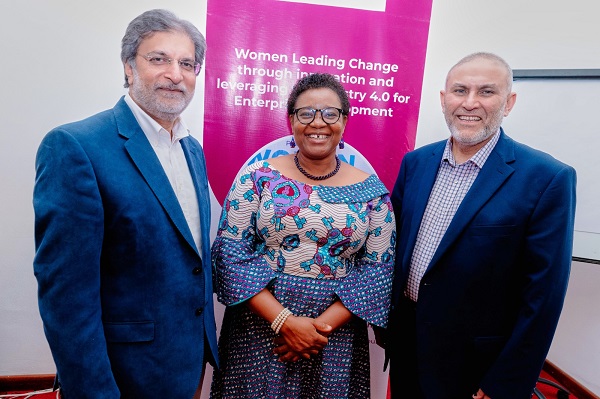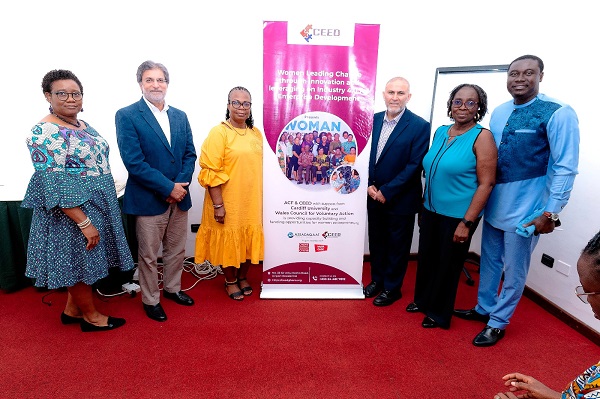A programme to build the capacity of women, particularly graduates from tertiary institutions in the country, is expected to be held in the course of the year.
The select women will undergo an eight-week course in Micro Small Medium Enterprises (MSMEs) to enable them to become more resilient.
The two model programme for startup, and executive coaching, will also provide the participants with digital skills development tools while providing funding opportunities for women entrepreneurs.
The training is being organised by the Centre for Entrepreneurship & Evaluation Development (CEED) in partnership with Assadaqaat Community Finance (AFC), Cardiff University and Wales Council for Voluntary Action.
Speaking to the Daily Graphic, on the sidelines of an event which brought together MSMEs to network and collaborate on innovative ideas for the next generation of entrepreneurial leaders and organised by the Centre for Entrepreneurship & Evaluation Development (CEED), the Founder and Chief Executive of ACF, Akmal Hanuk, said the training forms part of ACF Women Entrepreneurship Programme that seeks to empower women to build their confidence in business, solidify their strategy, expand their network, and get connected with relevant markets.
The World Bank estimates that 44 per cent of MSMEs in Ghana are women-owned. In 2020, the Mastercard Index of Women Entrepreneurs (MIWE) ranked Ghana 36.5per cent among the world's three leading economies with most women-owned businesses with Uganda, 39.6per cent and Botswana 38.5 per cent.
Entrepreneurial drive
Using street hawking in the country as an example, Mr Hanuk explained that increase in trade demonstrated a strong entrepreneurial drive women had.
He said to make them become financially inclusive and increase their incomes, create jobs and reduce social and economic inequalities, there was the need to equip women with the right skills and knowledge to help them make greater impact in their endeavours.
“Our key focus is on helping women from across Africa and minority ethnic communities to access the necessary skills, training, and finance required to start their own MSMEs.
It is a eight to eight week online training course (two hours a week), designed to help women overcome key challenges and barriers in entrepreneurship and help them to turn their business ideas into a commercially viable reality,” he said.

Catch up
The Founder and Director of CEED, Gifty Volimkarime, also in an interview explained that for women and youth to stay relevant in businesses, capacity building has to be a continuous lifelong learning for them to catch up with global trends.
“We believe that as the businesses also move from startup to commercialisation, the needs are also different from a startup. So in that light, we believe that we should continue to have this capacity building training ongoing,” she said.
Enabling environment
Ms Volimkarime said to help create an enabling environment for MSMEs to thrive, organisers of the programme were in talks with critical stakeholders to channel some issues raised at the training.
“We believe that the issues will be taken into consideration when they are reviewing policies or formulating some of these national initiatives to create an enabling environment for these businesses,” she added.
A beneficiary of last year’s training, Mercy Mensah, a fashion designer, expressed appreciation to CEED for this laudable initiative.
The training, she said, taught her a lot which had helped her to better manage her business.
